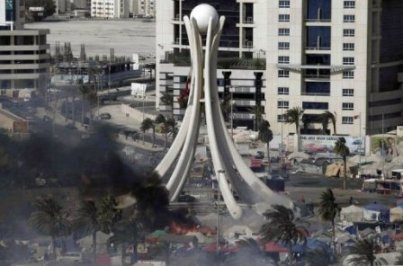
(AFP Photo)
The level of communication services and Internet in Egypt is very poor, according to a report by the International Telecommunications Union (ITU) for the year 2014, where Egypt ranked 86 among 150 countries for the use of IT, according to Talaat Omar, Chairman of the Association of Communication Engineers (ACE).
The report included how Internet is used, the price ranges compared to income, the level of infrastructure in the country, and the availability of communication services to users, reflecting the lower communication and Internet services in Egypt.
Regarding the IT infrastructure to apply new speeds next month, Omar believes that the infrastructure is not made to endure high speeds, asking about how it would be possible to increase the speed at a time when current clients are complaining of the poor service for the current speeds.
According to Omar, the state must complete the development and upgrading the infrastructure, as well as finalising the plan of substituting copper cables with fibre optic cables before working on increasing speed so that customers are not promised plans that cannot be implemented.
CEO of Sinaksak, Tarek Abdel Moneim, was however of a different opinion. He believes that the current infrastructure is relatively acceptable, and can offer good Internet speeds, adding that copper cables can endure speeds of up to 10mbps. However, the range would be limited, so that the speed would only reach a customer who lives 5km away from the communications centre.
Abdel Moneim pointed out that should it commit to the necessary technical standards, the telecommunications market would provide good service. He also emphasised that the Internet is no longer a luxury but a necessity and a strategic service; this is why the Ministry of Communications and Information Technology should place a timeline for increasing Internet speed.
He also expected the level of service to improve upon the establishment of a national entity for infrastructure and its participation in updating the IT infrastructure of the country.
Abdel Moneim compared ADSL speed in Egypt with European countries, where the slowest speed in Europe reached 10mbps, while the Egyptian market still operates with the 512kbps speed.
On his part, Hamdy El-Leithy, Board Member of Chamber of Information Technology and Telecommunication (CIT), said that the level of Internet services in the Egyptian market is not acceptable, and we must work on improving their quality before talking about modifying prices.
Furthermore, Telecom Egypt (TE) should speed up the implementation of its plan for the development of telecommunications cables and converting them to fibre optic cables instead of copper cables, which would contribute to improving the performance of telecommunications and Internet services.
Last year, TE replaced copper cables with fibre cables for 2m houses, and plans to replace cables for another 2m houses this year.

